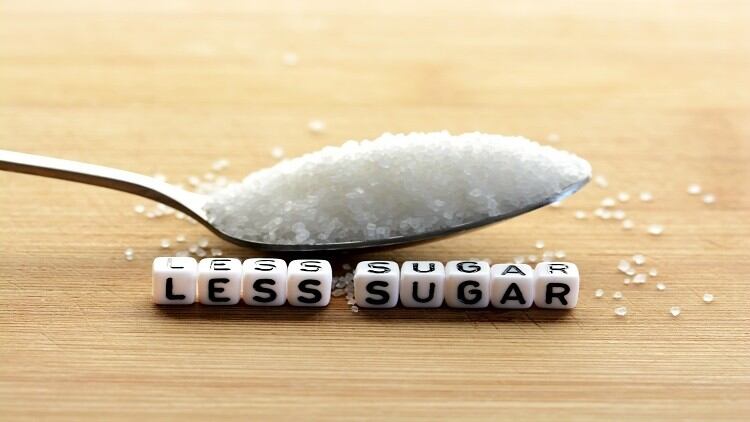Besides cutting down on sugar, salt and fat, the companies also pledged to place clear nutritional labels on their products.
Other companies which have signed the pledge include included Mondelez Arabia, Ferrero, Coca-Cola, PepsiCo International, Unilever, and Freeze Land.
They are all members of the International Food and Beverage Alliance (IFBA), an organisation founded by food and beverage companies to drive the promotion of healthier diets. The alliance boasted a combined annual revenue of over USD$410 billion in 2016.
Signed on Sep 12, the pledging ceremony was held in conjunction with SFDA’s launch of the Healthy Food Strategy.
The launch was held under the patronage of His Excellency the Minister of Health and SFDA Chairman Dr. Tawfiq Bin Fawzan Al Rabiah.
It was conceived as a part of Saudi Arabia’s Vision 2030, an initiative which aims to drive the production of healthier food.
Some companies which signed the pledge told FoodNavigator-Asia that plans to reformulate and launch healthier products were already in the pipeline.
Reformulation efforts
For instance, Kellogg’s had launched a new Coco Pops cereal with sugar reduced by 40% in the GCC market two months ago.
“This is following a reduction of 14% earlier in 2017, meaning that from 2017 to 2018, the sugar was halved in Coco Pops,” Lamia Fakhr, corporate affairs director (MedMEA) at Kellogg's Company.
In Q1 next year, it will also launch a healthier version of Coco pops biscuits, in which sugar, salt and saturated fats will be slashed by 7%, 26% and 40% respectively.
As for Mars, it said it had been reworking recipes, such as reducing industrially-produced fats in all chocolate products to technically unavoidable minimal levels.
Regionally, it had also reduced the levels of saturated fat in its chocolate products in Europe. For instance, it had reduced saturated fat in nougat bars, biscuit bars and chocolate by 15%-20%, 30%, and 7%-8% respectively.
It added that it is committed to reduce sodium in its food products worldwide, such as reducing sodium levels by an average of 20% across all food portfolio by 2021. It had previously reduced sodium in food products by 25% between years 2007 and 2012.
Nestlé also stressed that it has been working on producing healthier products over the years.
“We focus on our research and development to innovate and develop new products with simplified ingredients through culinary art, such as our new MAGGI Kitchen Cupboard initiative, where all the ingredients people know and love and are found in their kitchen cupboard,” said Karine Antoniades, public affairs and creating shared value manager at Nestlé Middle East.
In addition, she said none of the company’s products contains trans-fats from partially hydrogenated oils, including all confectionery products such as Kit Kat.
“Thanks to a breakthrough nutrition reformulation that allowed up to 30% sugar reduction, all our children and teenage breakfast cereals contain less than 9 grams of sugar per 30 gram serving,” she said.
She also added that the company will reduce salt, sugar and fat in its food products by recipe basis, instead of using artificial flavours and taste enhancers.
Dietary intervention urgently needed
Only a small percentage of the Saudi population met dietary recommendations, a group of researchers concluded from the findings of Saudi Health Interview Survey (SHIS).
For instance, the consumption of processed foods and sugar-sweetened beverages was high in young adults, while dietary guideline recommendations were met by only 5.2 % of individuals for fruits, 7.5 % for vegetables, 31.4 % for nuts and 44.7 % for fish.
The researchers commented that programmes to improve dietary behaviours “are urgently needed to reduce the current and future burden of disease.”
In addition, the promotion of healthy diets should target both the general population and specific high-risk groups, while regular assessments of dietary status are needed to monitor trends and inform interventions.
On the other hand, over 30% of the region’s population is obese and non-communicable diseases are expected to cause over 85% of deaths in Saudi Arabia, Christine Greaves, chairperson of the GCC Food & Beverage Alliance told FoodNavigator-Asia.
The GCC FBA consists of IFBA member companies operating in the GCC region.
She added that diabetes level is expected to rise by 96% by 2035 in MENA.
“The GCC FBA member believe that finding and implementing solutions to GCC public health challenges requires a whole-of-society effort and multi-stakeholder collaboration,” she said.
“We recognize the need for industry to do its part in helping tackle obesity and NCD’s across the region. It is for this reason that we have enacted joint voluntary actions in the areas of product formulation and innovation, nutrition information, responsible advertising and marketing to children, and promotion of healthy lifestyles and the pledge was a natural step towards meeting this commitment and ensuring a collaborative approach.”


